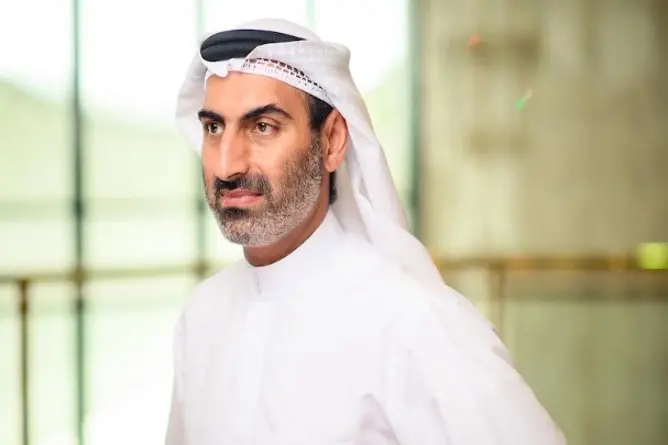PHOTO
Dubai, United Arab Emirates: The United Arab Emirates (UAE) was perceived to have the strongest reputation for providing excellent healthcare in the GCC, according to a recent survey conducted by Clemenceau Medical Center (CMC) Hospital in Dubai, in collaboration with Toluna, a leading market research consultancy. The survey, which polled 1,680 residents across the UAE, Saudi Arabia (KSA), Qatar, and Kuwait in February 2024, revealed that 29% of respondents across the GCC selected the UAE as the country with the best healthcare reputation, surpassing that of global healthcare leaders such as the US (19%), Germany (17%), the UK (11%), and India (7%).
Strong Inclination to Travel for Medical Care, Despite Low Brand Loyalty
Across the GCC, a notable 84% of respondents expressed their willingness to travel in some capacity to visit a specific a medical centre. Among these, most of these (53%) stated they would travel to a different city but remain within their country of residence, 28% would travel to a different country but remain in the Middle East, and 19% would travel to another country, outside of the Middle East. The US, Germany, and the UK emerge as the most popular destinations among those considering medical care abroad, selected by 50%, 43%, and 41% of respondents in that category.
When it came to brand loyalty, almost 7 in 10 GCC residents (68%) indicated they are willing to switch between medical providers. However, the switch is more often dictated by necessity rather than preference. Among those who indicated a willingness to switch, 33% stated they do so when they have to, such as in case of emergency, lack of physician’s availability, or absence of insurance coverage. Furthermore, 25% indicated they sometimes switch based on location or needs, with only 10% of respondents stating they switch between medical centres on a regular basis.
The trend is the most pronounced in the UAE, where as many as 73% were willing to switch. In contrast, Kuwait showed the highest level of loyalty, with 41% of respondents preferring to stick to a single healthcare provider.
Commenting on these results, Abdulrahman Abdulaziz Khansaheb, Chairman of CMC hospital Dubai, stated: “These findings underscore the UAE’s leading position in the GCC’s healthcare sector, driven by its robust infrastructure, skilled medical professionals, and advanced healthcare technology.” He added: “The strong inclination of GCC residents to travel for medical care, compounded with the surge of international medical tourists in Dubai, presents a significant opportunity for the UAE to continue solidifying its positioning as a regional hub for medical tourism.”
Medical Professional Expertise, Care and Insurance Coverage Among the Key Factors Influencing Healthcare Facility Selection and Experience
More than half of GCC residents prioritise medical professional expertise (55%) and insurance coverage (51%) when selecting a healthcare facility. The survey revealed that medical testing facilities and cost and affordability are also crucial, both selected by 47% of respondents, followed by reputation and accreditation, selected by 44%.
In the UAE, insurance coverage stood out as the most critical factor, selected by 63% of respondents, while in the KSA, medical professional expertise was perceived as paramount, selected by 60% of respondents.
When asked about the factors that contribute the most to fostering a positive experience at a healthcare facility, the overall care by medical professionals and the willingness of physicians to go ‘above and beyond’ in providing post-consultative support were identified as the top contributors, both selected by nearly half (48%) of GCC respondents. Care and service provided by support staff, and ease of booking an appointment, came in second, both selected by 45%. Speed of test results was selected by 43%, and was seen as particularly important in the UAE, where it was selected by more than half of respondents.
Most of these factors were significantly higher in the UAE than in other markets: overall care by medical professionals and ease of booking an appointment were particularly emphasised, selected by 54% and 53% of respondents respectively, significantly high when compared to the GCC average.
Word of Mouth Seen as the Most Crucial Aspect Influencing a Hospital’s Reputation
The survey also showed that reviews and word of mouth from friend and family was the most crucial aspect affecting a hospital’s reputation, selected by more than half (51%) of GCC respondents. This factor is particularly influential in KSA, where such recommendations are relied on by as much as 57% of respondents.
The calibre of medical facilities and the innovative technology provided by the healthcare institution were also crucial, with 50% of respondents across the GCC citing this factor. Referrals from a trusted healthcare professional and the panel of medical professionals available were also heavily considered, selected by 48% and 47% of GCC respondents, respectively.
Gastroenterology Leading the Way as the Top Health Concern Among GCC Residents
Data from the survey highlighted gastroenterology as the top health concern among GCC residents, with 26% of respondents expressing this as a primary worry. Close behind were concerns about obesity, diabetes, and back and neck problems, each cited by 23% of GCC respondents. In Saudi Arabia, obesity was identified as the leading health concern by 28% of respondents. Meanwhile, gastroenterology, diabetes, and back and neck problems emerged as the most prevalent issues in Kuwait, with 39%, 33%, and 29% of respondents respectively indicating these concerns, significantly higher than the average rates across the GCC.
Dr Alya Saif Al Mazrouei, CEO of CMC hospital Dubai, said: “Healthcare organisations seeking to stand out today must invest in their patient experience journey and the calibre of their medical professionals. The low brand loyalty in the region highlights the need for continuous innovation to exceed patient expectations.” She added: “In light of prevalent health concerns such as gastroenterology, obesity, and diabetes, it is imperative that we continue to invest in ongoing research and development to address the most pressing health issues facing our community."




















